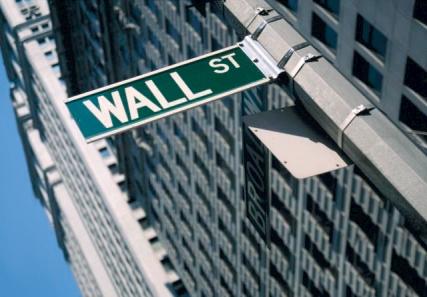China has ceased to be the largest foreign holder of US government bonds - its place was taken by Japan, what follows from the statistics the US Treasury. Japanese buyers pushed the economic policy of the Japanese authorities and lower interest rates by purchasing bonds. At the end of February, private investors and official institutions in Japan owned government bonds amounting to US $ 1.2244 trillion. China over the same period had bonds for the sum of $ 1,223,7 trillion.
China has shifted from the leading position for the first time since the financial crisis of 2008-2010.
US Treasuries bring higher returns than bonds of other major countries, due to the States’ growth outlook and almost zero income on Bank of Japan bonds. 10-year-old Japanese paper bring all 0.322%, while the US - 1,900%.
Japanese investors and institutions are buying US Treasuries rapidly, writes The Wall Street Journal. In general, in the past, the Japanese have increased the amount of assets of $ 13.6 billion, while Chinese stocks fell down $ 49.2 billion.
According J.P. Morgan Chase & Co, in March the Japanese acquired bonds worth $ 21.8 billion, in February - $ 10.9 billion.
Despite the ever-increasing American financiers’ stress, investments in the US economy are becoming more attractive.
US may seem to be open to innovation and finance, but their regulators rather severely restrict new companies to raise capital. Population is forbidden to take risks and participate in the financing of the company in the initial period for alleged safety and consumer protection.
But in May, when new rules approved by the Securities and Exchange Commission (SEC) on March 25 will come into force, many of these restrictions will be lifted. They would change the process of raising capital in a way that will ease the task of financing start-ups.
Thus, according to one of the long-awaited additions to the law on the financing of start-ups (JOBS Act), which was adopted in 2012, new companies will be allowed to raise up to $ 50 million, which is often referred as mini IPO, or initial public offering. And, although it will still need to obtain the approval of SEC, many annoying limitations will be canceled, says The Economist.
The most controversial aspects of the innovations relate to those who would like to invest in mini IPO. Today the condition of access to something extraordinary is being a somewhat "qualified" investor: equity of at least $ 1 million or an annual income of more than $ 200 thousand. In May, anyone can invest up to 10% of their income in the initial stage of risky business.
The new rules will certainly revive crowdfunding (websites, which allow the public to invest in promising companies). Such portals like Kickstarter and Indiegogo, now allow ordinary people to support financially small businesses, but small speculators usually are rewarded only with the first product. Now they can also receive shares.
Some other barriers will be eliminated for small firms. Companies no longer need to enter the SEC approved list, which requires disclosure of inside information.
Financial results will be necessary to provide twice a year, instead of each quarter, as it is now. In addition, the company will be able to abandon the "independent" audit committee of the board of directors - a costly requirement of the Sarbanes-Oxley Act, adopted shortly after the collapse of Enron in 2001.
According to Sam Guzik, a lawyer who represents companies preparing for IPO, the reform would simplify the process of raising funds for firms what will certainly accelerate the growth and ease the way to the inclusion in the list of stock exchange.
Meanwhile, skeptics worry that crowdfunding projects will become a magnet for fraudsters. However, the most alarming fact is that startups tend to fail. In Britain, where crowdfunding capital is very common, regulators have warned investors that the most likely they will lose money.
China has shifted from the leading position for the first time since the financial crisis of 2008-2010.
US Treasuries bring higher returns than bonds of other major countries, due to the States’ growth outlook and almost zero income on Bank of Japan bonds. 10-year-old Japanese paper bring all 0.322%, while the US - 1,900%.
Japanese investors and institutions are buying US Treasuries rapidly, writes The Wall Street Journal. In general, in the past, the Japanese have increased the amount of assets of $ 13.6 billion, while Chinese stocks fell down $ 49.2 billion.
According J.P. Morgan Chase & Co, in March the Japanese acquired bonds worth $ 21.8 billion, in February - $ 10.9 billion.
Despite the ever-increasing American financiers’ stress, investments in the US economy are becoming more attractive.
US may seem to be open to innovation and finance, but their regulators rather severely restrict new companies to raise capital. Population is forbidden to take risks and participate in the financing of the company in the initial period for alleged safety and consumer protection.
But in May, when new rules approved by the Securities and Exchange Commission (SEC) on March 25 will come into force, many of these restrictions will be lifted. They would change the process of raising capital in a way that will ease the task of financing start-ups.
Thus, according to one of the long-awaited additions to the law on the financing of start-ups (JOBS Act), which was adopted in 2012, new companies will be allowed to raise up to $ 50 million, which is often referred as mini IPO, or initial public offering. And, although it will still need to obtain the approval of SEC, many annoying limitations will be canceled, says The Economist.
The most controversial aspects of the innovations relate to those who would like to invest in mini IPO. Today the condition of access to something extraordinary is being a somewhat "qualified" investor: equity of at least $ 1 million or an annual income of more than $ 200 thousand. In May, anyone can invest up to 10% of their income in the initial stage of risky business.
The new rules will certainly revive crowdfunding (websites, which allow the public to invest in promising companies). Such portals like Kickstarter and Indiegogo, now allow ordinary people to support financially small businesses, but small speculators usually are rewarded only with the first product. Now they can also receive shares.
Some other barriers will be eliminated for small firms. Companies no longer need to enter the SEC approved list, which requires disclosure of inside information.
Financial results will be necessary to provide twice a year, instead of each quarter, as it is now. In addition, the company will be able to abandon the "independent" audit committee of the board of directors - a costly requirement of the Sarbanes-Oxley Act, adopted shortly after the collapse of Enron in 2001.
According to Sam Guzik, a lawyer who represents companies preparing for IPO, the reform would simplify the process of raising funds for firms what will certainly accelerate the growth and ease the way to the inclusion in the list of stock exchange.
Meanwhile, skeptics worry that crowdfunding projects will become a magnet for fraudsters. However, the most alarming fact is that startups tend to fail. In Britain, where crowdfunding capital is very common, regulators have warned investors that the most likely they will lose money.



















